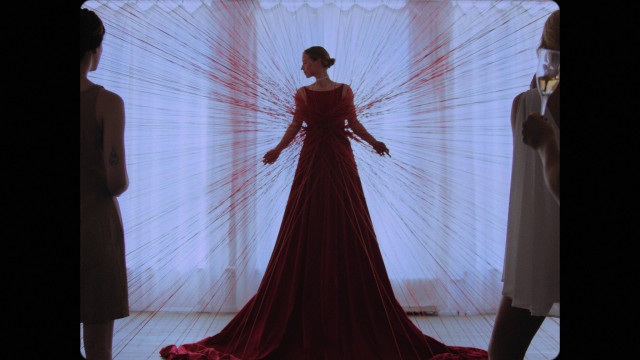The realms of Music Video and Short Film, once distinct, are continually converging. From the POV of directors, the impulse is two-way—when I was a curator at Vimeo, I was routinely interacting with creators from both spheres, and found it funny that so many of the music video directors wanted the narrative storytelling experience and festival accolades accrued by short filmmakers, while so many short filmmakers were asking me how break onto a commercial roster for music videos. The creators on both sides tended to be of similar ages, ambitions, and relative levels on their industry’s pecking order, but the two forms really do have differing sensibilities. It was, and still is, exceedingly common to see brilliant directors from one side cross over and stumble with mediocre work in the other.
This mutual fascination has been picked up on the industry side as well, and driven by music artists and labels, a hybrid has emerged in the past few years—the music short film. At its worst these are scarcely “films” but overlong music videos—multi-track visual albums with a bit of atmospheric connective tissue (though as Lemonade showed, even this form is capable of achieving high art). But at their best, creators are able to tell compelling stories buoyed by the direct emotion of great tracks and married to a level of visual panache that is rare in the festival shorts world.
Almost no one is better at this format than Jonathan Desbiens, the Canadian director better known as Jodeb. When firing on all cylinders his work positively sings, as we saw in the 21min Short of the Week featured music short Still in the Cage. This film, originated as a music video for the Montreal artist Kroy, is his latest work and it is his furthest foray into straight narrative.
In Learn: 1st World Problems, a creative director overhears her young staff dismissively discussing her latest collection. They are bored by it, feeling as though it is playing it too safe. Inspired by a mix of fear, anger, competition, and jealousy, she goes back to the drawing board, determined to break out of her creative shell with something bold, something that transcends fashion, even if it ends up self-destructive.
Shot by fellow S/W alum Kristof Brandl, the 4:3 film is, naturally, terrific to look at, but the pleasure of the short film comes from the psychology of its characters. It’s a tonally interesting piece, described by its creator as a dark satire. It’s both a universalist look at the pressures of the artistic process, but also a incisive examination of female relationships, and the changing hierarchies in the creative industry driven by Millennial attitudes and entitlement. Desbiens, in summarizing his inspiration, wrote us stating “I often find myself very obsessed with certain problems (like many artists I suppose) then often step back and find it so absurd compared to what the real problems of this world are. I was looking to put in light some scenes and characters that would reflect this and I believed it would show how pathetic, but profoundly human the quest for recognition and respect can sometimes become.”
For our Fashion Director this quest for recognition evokes obsession and narcissism in equal measure. The showpiece of the film is its unveiling of the dress, a living artwork that evokes Marina Abramovic and the concept of “performing art”. Based off a similar piece Desbiens created in art school, the director worked with production designer Sylvain Lemaitre and dress designer Eliza Faulkner to produce a rather stunning installation for the film’s emotional climax. Desbiens to us describes the “strange contradiction” of the piece where “the strings are pulling you in all direction, trying to break you apart, but yet the lines are all pointing toward you, as if you were the centre of the world”.
For Desbiens he recognizes that this vanity is self-defeating, but contains a noble core. She wants “her life to be art” despite the sacrifice, yet he is darkly cynical about the motivations which perpetuate this dedication, and the cocoons of privilege and obliviousness that inform her obsession. It is reflected in the blunt title of the piece, and invokes the universally understood self-centered nature of artists. Yet fueled by insecurity they do create beauty, and while Desbiens hopes that his satirical message is clear to viewers by the end of the film, audience reaction is outside of the artist’s control—I’d wager that more than a few artists out in the world will not read tragedy into the ending, but triumph.

 Jason Sondhi
Jason Sondhi
